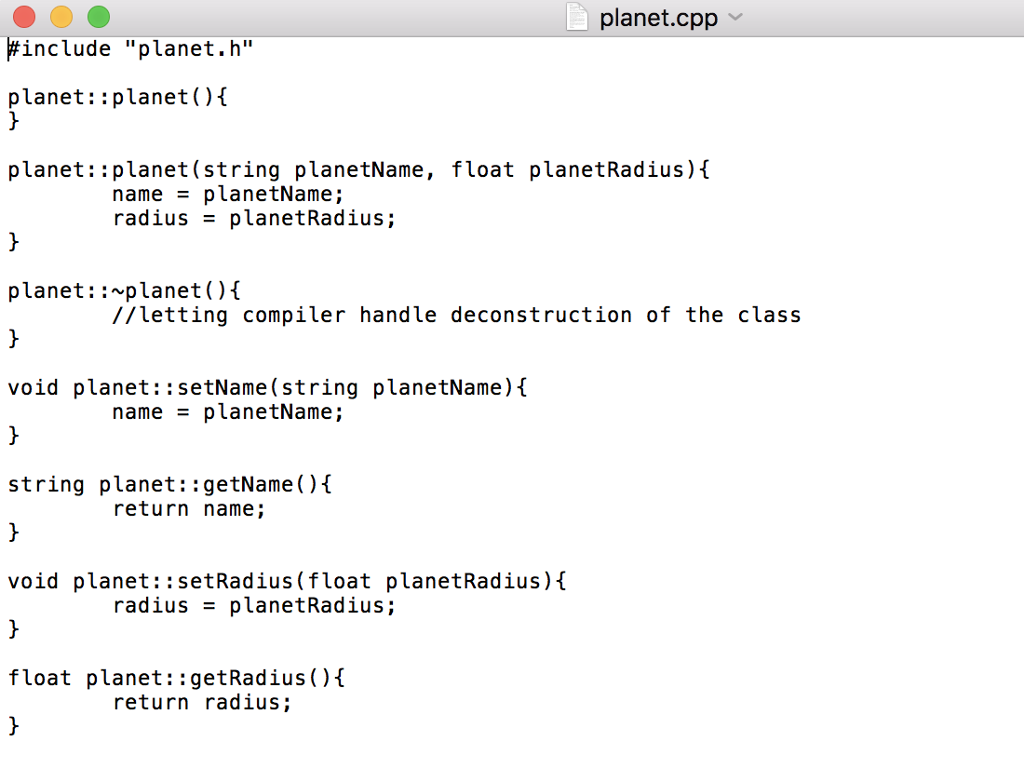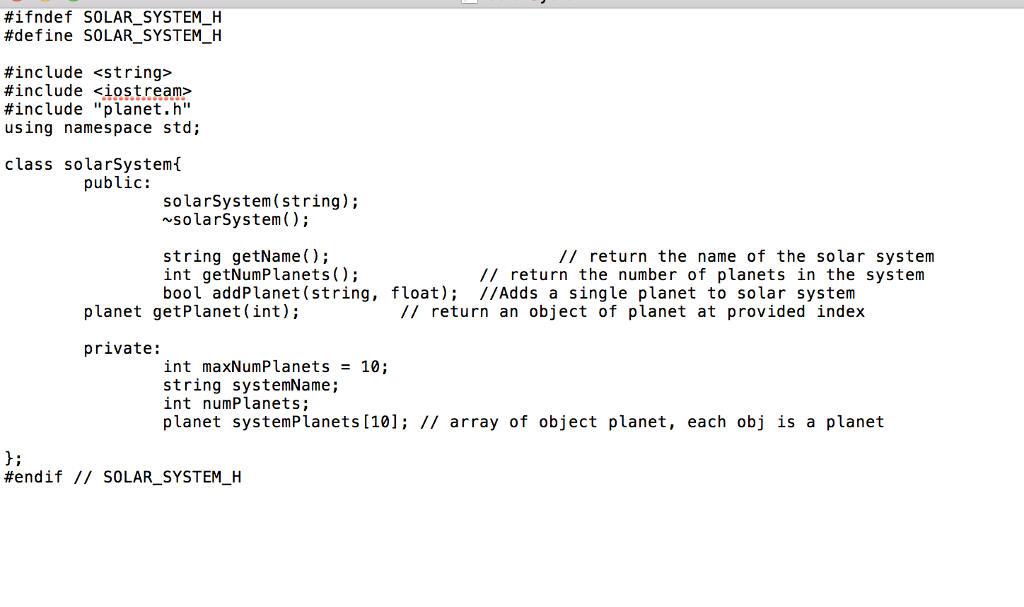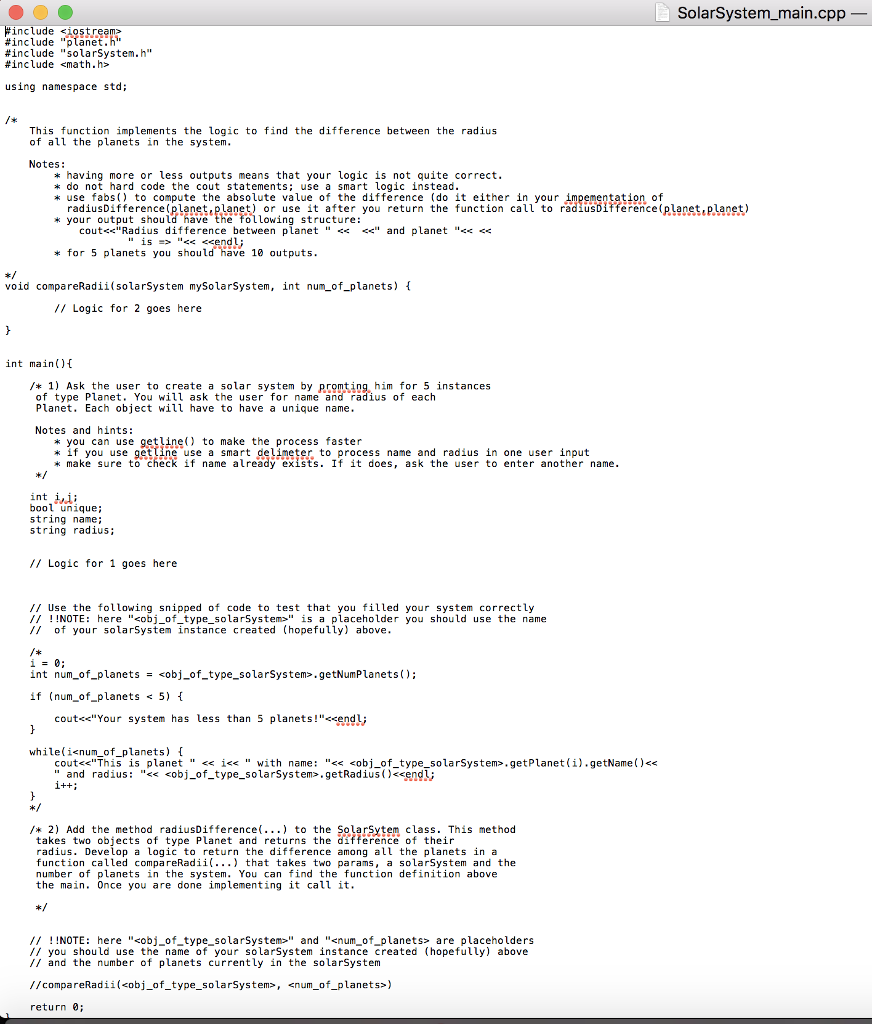Question
C++ ONLY Part 1: Planet Class Parts 1 and 2 of this recitation activity have a shared main file SolarSystem_main.cpp, provided to you on Moodle.
C++ ONLY
Part 1: Planet Class Parts 1 and 2 of this recitation activity have a shared main file SolarSystem_main.cpp, provided to you on
Moodle.
The class you will implement is called Planet . This time we have given you the class file planet.cpp . It is your job to create the header file for the planet class. Create the file planet.h in CodeBlocks in the same directory as the main file. The planet class has two constructors, a default constructor (which takes no arguments) and a constructor that takes two arguments. One argument should be the name of the planet and the radius of the planet (in km). It should also have getters and setters for the class attributes.
Part 2: Planet Class The next class you will implement is called solarSystem . The solarSystem .h file is provided on moodle,
and you will create your class file solarSystem.cpp .
There are four private attributes in this class: maxNumPlanets (the max number of planets in this solar system) , systemName (the name of the solar system) , numPlanets (how many planets are in this solar system) and systemPlanets (an array of planets in this solar system) .
There should also be one constructor, a destructor, and five methods to create for the solarSystem class. Two of the five methods are getters for the class attributes systemName and numPlanets . addPlanet(string, float) should add a new planet into the solar system. getPlanet(int) should return the the planet object of the index indicated by the argument. Finally, you will have to add a member function,
radiusDifference(Planet, Planet), that calculates the difference in radius between two planets (read the comments in solarSystem_main.cpp for more information) .
Once you have implemented the header file for the planet class, you will need to modify your main to test
your classes. In solarSystem_main.cpp , you will have to ask the user for names and the radius of five
new planets you want to add to the solar system, and print out the difference in radius between every two
planets in the system. Find a smart logic to compute all the differences as there are
C (5, 2) = 5! = 10 possible combinations and you do not want to hard code all of them. Additional 2!(52)!
information is found in the source files. 
solarSystem.h

Step by Step Solution
There are 3 Steps involved in it
Step: 1

Get Instant Access to Expert-Tailored Solutions
See step-by-step solutions with expert insights and AI powered tools for academic success
Step: 2

Step: 3

Ace Your Homework with AI
Get the answers you need in no time with our AI-driven, step-by-step assistance
Get Started


